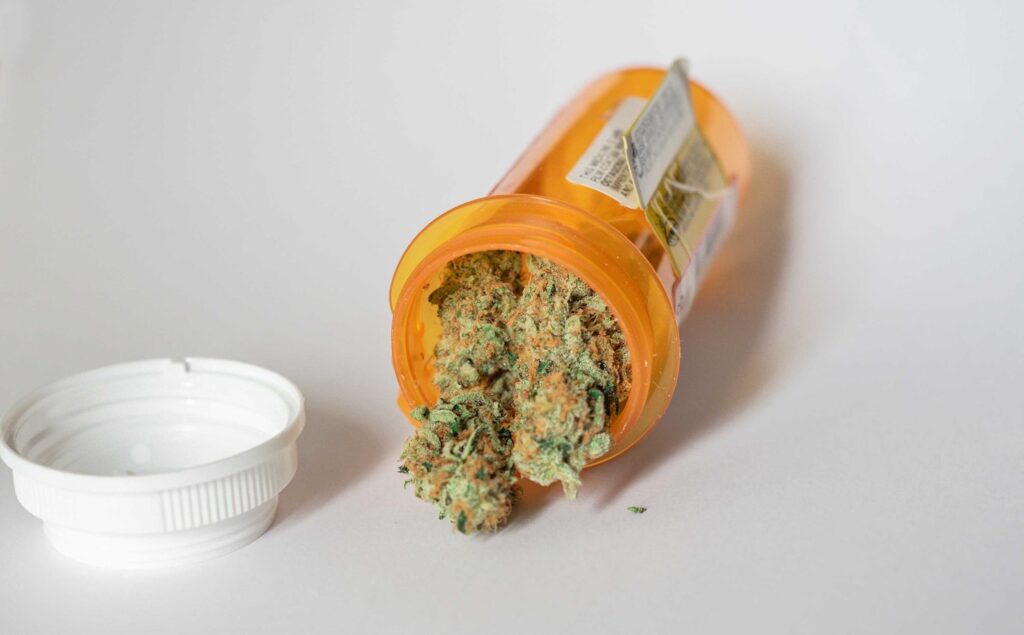Introduction
The debate over the medicinal uses of marijuana has been going on for decades. On one side, there are those who argue that marijuana can be used to treat a variety of medical conditions and should be legalized for this purpose. On the other hand, opponents point out potential risks associated with using cannabis medicinally and contend that it should remain illegal.
So what is the truth about weed as medicine? Does it have any real benefits or is it just a dangerous drug? In this article, we will look at both sides of the argument.
Keep reading to learn more.
What are the Medicinal Benefits of Cannabis?
Cannabis, also known as marijuana, has been used for medicinal purposes for thousands of years. In recent decades, scientific research has confirmed its potential therapeutic benefits. One of the primary active compounds in cannabis is delta-9-tetrahydrocannabinol (THC), which is responsible for its psychoactive effects. Another important compound is cannabidiol (CBD), which has non-psychoactive properties and is the focus of much current research.
Cannabis has been shown to have several medical benefits, including reducing nausea and vomiting in chemotherapy patients, reducing spasticity in multiple sclerosis patients, and improving appetite and sleep in patients with HIV/AIDS. It is also being investigated for its potential ability to treat chronic pain, epilepsy, and post-traumatic stress disorder (PTSD), among other conditions.
In particular, CBD has been found to have anti-inflammatory, analgesic, and anti-anxiety properties, and is being studied as a potential treatment for epilepsy, schizophrenia, and other psychiatric disorders. It may also have potential in treating substance abuse disorders, as it has been shown to reduce cravings for drugs such as heroin and cocaine.
Risks and Side Effects of Cannabis Use
Cannabis, also known as marijuana, has been the subject of debate regarding its medicinal benefits. While it may have some therapeutic effects, it also carries several risks and side effects.
One of the most significant risks of cannabis use is its potential for addiction. According to recent research from the National Institute on Drug Abuse, approximately 9% of people who use marijuana will become addicted to it. That number rises to 17% for those who begin using it during adolescence. Additionally, heavy and prolonged use of cannabis can lead to withdrawal symptoms, such as anxiety, irritability, insomnia, and loss of appetite.
Cannabis use can also have negative effects on mental health, particularly for those with preexisting conditions. Chronic use of marijuana has been linked to an increased risk of psychosis, depression, suicidal ideation, and anxiety disorders. In some cases, it can even trigger the onset of psychotic disorders in vulnerable individuals.
Another risk associated with cannabis use is impaired cognitive function. It can negatively affect attention, memory, learning, and decision-making abilities. Individuals who use cannabis heavily or chronically may experience a decline in IQ and academic or career-related success. Furthermore, cannabis use can impair driving abilities and increase the risk of accidents.
When it comes to physical health, smoking cannabis can have adverse effects on the respiratory system. It can be associated with chronic bronchitis, chronic cough, and lung infections. Ingesting cannabis through edibles, on the other hand, has been linked to gastrointestinal complications, such as nausea, vomiting, and abdominal pain.
Should You Use Cannabis?
Before deciding to use cannabis as a form of medication, it is essential to consider multiple factors.
First, one should research their state’s laws and regulations regarding cannabis use. While many U.S. states have legalized medical cannabis, it is still illegal in others, and breaking the law can lead to serious consequences.
Secondly, it is essential to consult a healthcare professional before using cannabis. While cannabis has been proven to have medicinal benefits, it can also have adverse effects if used excessively or without professional guidance. A doctor can help determine if cannabis is the right form of treatment for your specific condition and can provide dosing recommendations.
Furthermore, it is crucial to consider the potential side effects of cannabis use. While some users experience relief from conditions such as chronic pain or anxiety, others may experience negative side effects such as paranoia, dizziness, and impaired cognitive function. It is essential to understand these potential side effects and determine whether the benefits of using cannabis outweigh the risks.
Lastly, one should consider the method of consumption they plan to use. Cannabis can be consumed in various ways, including smoking, vaping, edibles, and topical creams. Each method has its potential benefits and drawbacks, and it is crucial to research and determine which method is most suitable for your needs.
Conclusion
In conclusion, while cannabis may have some medicinal benefits, it is also associated with several risks and side effects. Individuals who choose to use cannabis should be aware of these potential harms and use it in moderation. Additionally, individuals who have a history of psychiatric disorders or substance abuse should exercise caution when using cannabis, and should consult with a healthcare professional before use.

Dr. Nicholas Marsh has been a respected board-certified anesthesiologist in Northern Virginia for over 35 years. Recognized as a top doctor by FindaTopDoc.com, his vision for providing top-quality medical services is driven by his passion for patient comfort and dignity.

